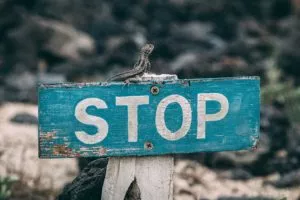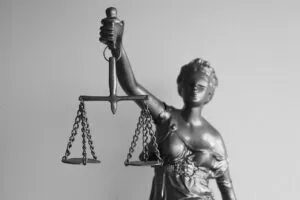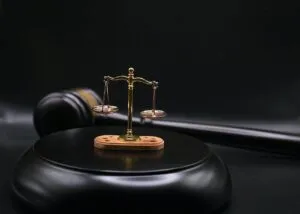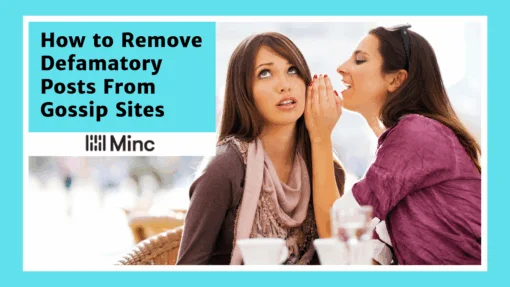
- Originally Published on August 4, 2025
How to Remove Defamatory Posts From Gossip Sites
Gossip and shaming platforms have evolved significantly in recent years, moving from standalone websites to popular subreddits, mobile apps, and private social media communities. Platforms like Reddit’s Fauxmoi and PopCultureChat, Lipstick Alley forums, the Tea app, and countless private Facebook groups now serve as venues where anonymous users can post damaging content about individuals without accountability.
If you have discovered defamatory content about yourself on these gossip platforms, you are likely feeling overwhelmed and unsure of your options. The anonymous nature of these posts and the viral way content spreads across multiple platforms can make the situation feel hopeless. However, you do have legal rights and practical options for addressing harmful content.
At Minc Law, we focus on online defamation and reputation management cases. We have helped thousands of clients remove harmful content from gossip platforms and other online venues. This comprehensive guide will walk you through your options for fighting back against defamatory gossip posts and protecting your online reputation.
What Are Modern Gossip Platforms and Why Are They So Problematic?
Today’s gossip ecosystem spans multiple platforms and formats, each presenting unique challenges for content removal and reputation management. Understanding how these platforms operate is crucial for developing an effective removal strategy.
Common Examples of Gossip and Shaming Platforms
The current landscape includes popular Reddit communities like r/Fauxmoi and r/PopCultureChat, which focus on celebrity and influencer gossip but often feature posts about private individuals. Lipstick Alley operates as a forum-style platform where users discuss entertainment, relationships, and personal drama. The Tea app allows users to post anonymous gossip about people in their local area.
Private Facebook groups, Discord servers, and other closed communities also serve as venues for sharing personal information and accusations. These platforms share common characteristics: they rely on user-generated content, often allow anonymous posting, and create environments where unverified information can spread rapidly.
How These Platforms Operate
Most modern gossip platforms operate with varying levels of content moderation. Reddit relies on volunteer moderators who may have different standards and response times. Lipstick Alley has community guidelines but may offer limited enforcement resources. Private social media groups often have minimal oversight beyond basic platform rules.
The anonymous or pseudonymous nature of most submissions encourages users to post content they would never share publicly under their real names. This anonymity, combined with the entertainment value of gossip, creates an environment where false and damaging information can spread rapidly without verification.
Why Defamatory Gossip Posts Go Viral
Many gossip platforms are indexed by search engines, meaning posts can appear in Google searches of your name. Reddit posts, in particular, often rank highly in search results due to the platform’s strong domain authority. The engaging nature of gossip content encourages sharing across social media platforms, and screenshots from these platforms frequently appear on Twitter, Instagram, and TikTok.
Content from gossip platforms is often reposted or discussed on other websites and social media accounts, creating a web of interconnected harmful content. What starts as a single Reddit post or Tea app submission can quickly multiply across dozens of platforms and reach thousands of people.
Legal Landscape: Section 230 and Its Implications
Understanding the legal framework governing online content is essential for developing realistic expectations about your removal options and potential legal remedies.
What is Section 230 of the Communications Decency Act?
Section 230 is a federal law that provides broad immunity to website operators for content posted by their users. This means that platforms like Reddit, Lipstick Alley, and Facebook generally cannot be held liable for defamatory content posted by users, even if the platform profits from that content or fails to remove it when notified.
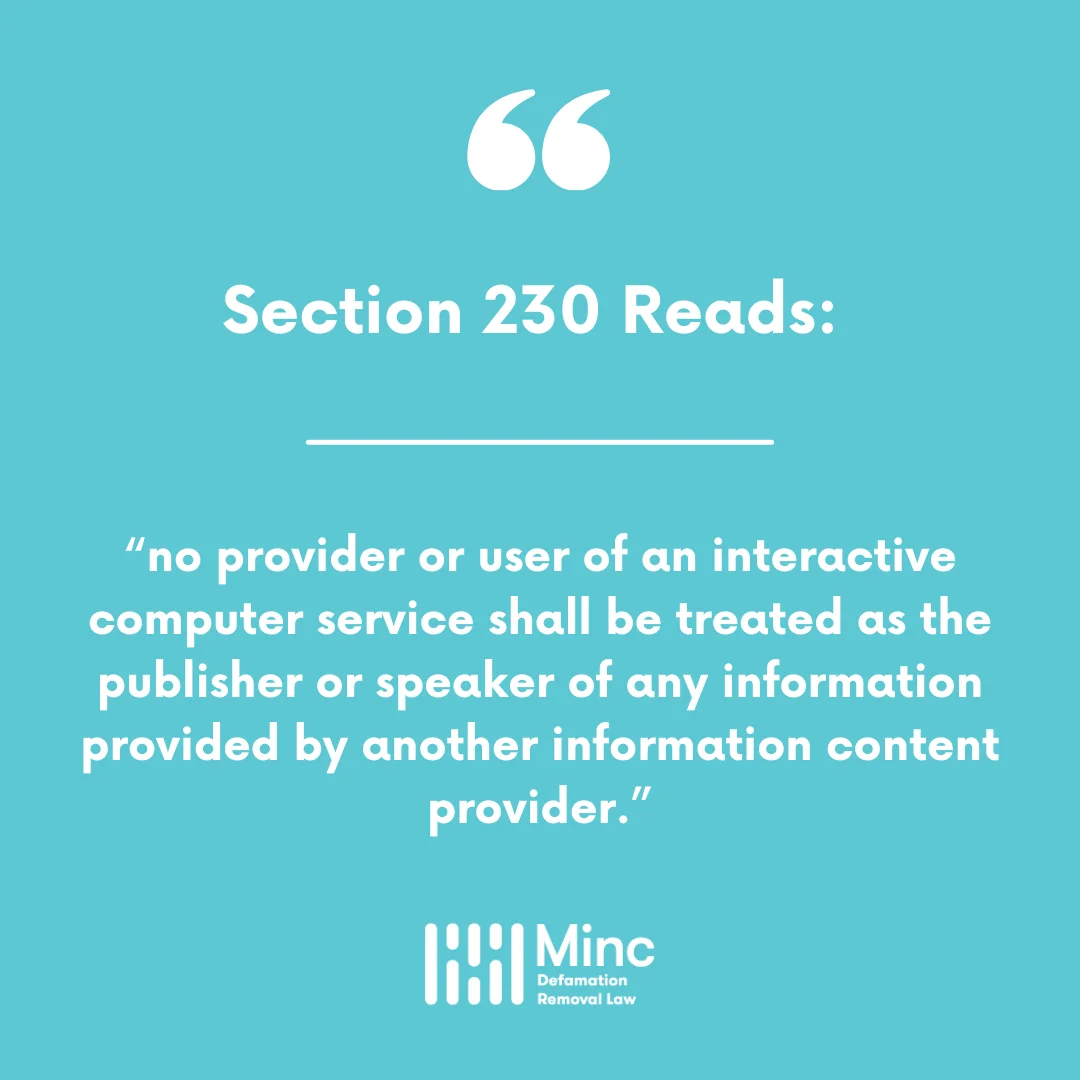
The law treats websites as neutral platforms rather than publishers, shifting legal responsibility to the individual users who create and post content. This protection extends to the platform’s editorial decisions, including choices about what content to host or remove.
What This Means for Victims
Section 230 significantly limits your ability to sue gossip platforms directly for hosting defamatory content about you. Instead, your legal remedies typically focus on pursuing the individual who posted the harmful content, which can be challenging when posts are anonymous or pseudonymous.
However, this does not mean you are without options. Platforms may still remove content that violates their own terms of service, and there are legal strategies for identifying anonymous posters and holding them accountable for defamatory statements.
Assessing Your Situation Before Taking Action
Before pursuing removal efforts, it is important to thoroughly assess your situation to determine the most effective strategy and set realistic expectations for outcomes. Not all harmful content qualifies for the same removal approaches, and understanding what you are dealing with legally can save you time and money.
Understanding What Qualifies as Defamation
Before exploring removal options, you need to understand whether the harmful content about you actually constitutes defamation under the law. This distinction matters because defamatory content opens up additional legal remedies beyond simple platform removal requests.
For content to qualify as defamation, it must meet four specific legal requirements:
1. The statement must be false
True statements, no matter how embarrassing or reputation-damaging, are not defamatory. The law protects people’s right to share truthful information. However, if the gossip post contains false claims about your behavior, character, or actions, this element is satisfied.
2. The statement must be presented as fact, not opinion
Personal opinions like “I think Sarah is annoying” are generally protected speech. But specific factual claims like “Sarah was fired for stealing from her employer” or “Sarah has herpes” present statements that can be proven true or false.
3. The statement must be shared with third parties
This means the false information was communicated to other people beyond just you and the poster.
4. The statement must cause reputational harm
You must be able to demonstrate that the false statements actually damaged how others perceive you. This could include lost job opportunities, damaged personal relationships, social ostracism, or other measurable consequences.
Additionally, the poster must have acted with at least negligence, meaning they should have known the information was false or failed to verify it before posting. For private individuals, this is typically an easier standard to meet than the “actual malice” standard required for public figures.
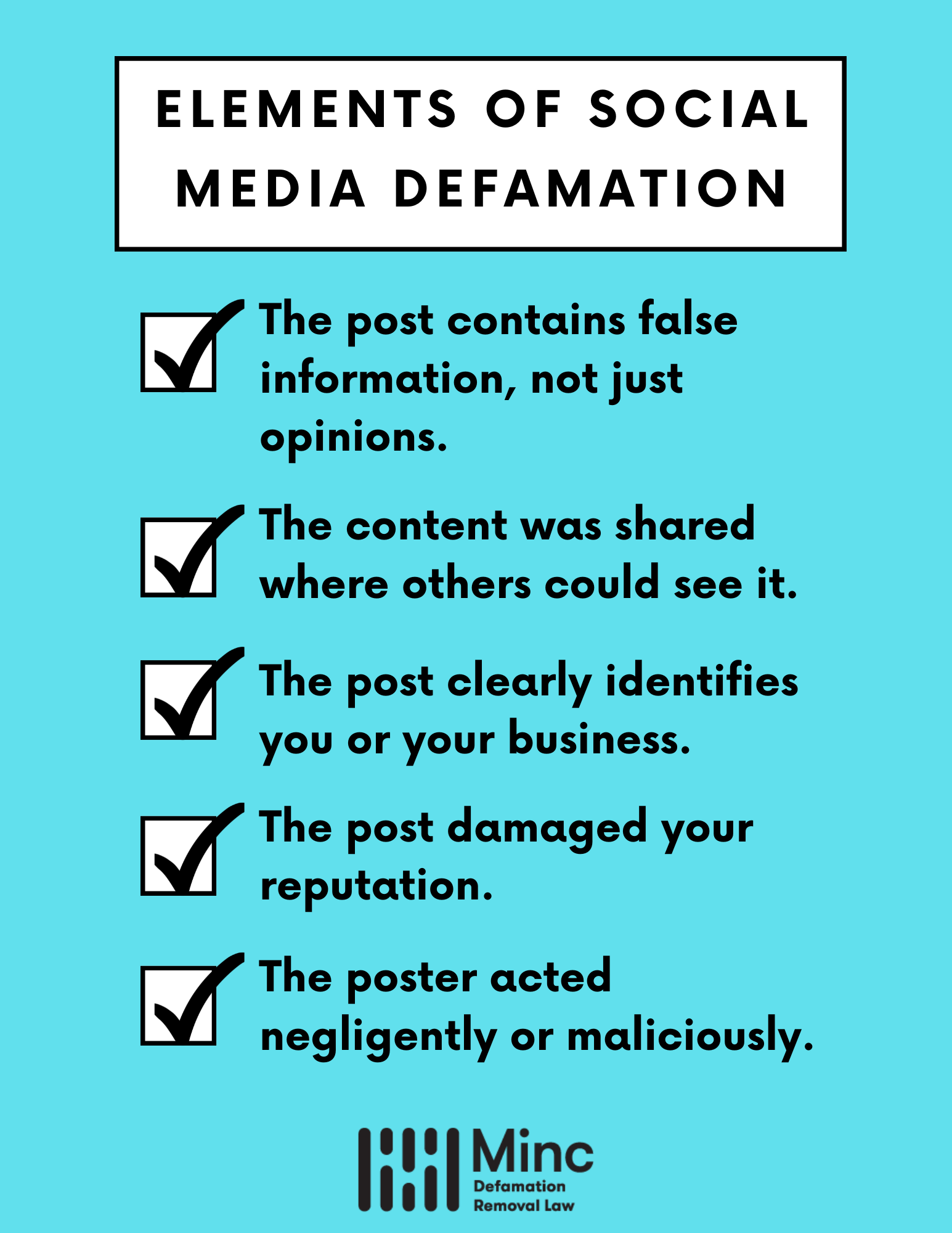
If the harmful content meets these criteria, you have potential defamation claims that can support stronger removal efforts and possible monetary damages. If not, you may still have removal options based on platform policies, privacy violations, or copyright issues.
Step-by-Step Guide to Removing Defamatory Gossip Posts
Removing defamatory content from gossip platforms requires a systematic approach that escalates through various strategies based on the specific circumstances of your case.
Step 1: Document Everything Immediately
Before taking any action, thoroughly document all harmful content. Capture full-page screenshots that include URLs, timestamps, usernames, and any user information visible on the posts. For Reddit posts, include the subreddit name, post score, and comment count. For private groups, document the group name and membership size if visible.
Document not just the primary post but also any comments, shares, or related content. Save multiple copies in different formats and locations to ensure evidence preservation, as content on these platforms can be deleted or edited without notice.
Step 2: Consult With an Attorney Familiar With Online Defamation
Before pursuing removal efforts, consult with an experienced online defamation attorney who can evaluate your situation and explain your legal options. An attorney can help you understand whether the content qualifies as defamatory, assess the strength of potential legal claims, and develop a strategic approach to removal.
Even if you ultimately decide not to pursue litigation, legal consultation can help you avoid common mistakes and choose the most effective removal strategies for your specific situation.
Step 3: Investigate and Identify All Harmful Posts
Conduct a comprehensive search to identify all instances of the harmful content across the internet. This includes checking multiple subreddits, other forum platforms, social media sites where screenshots might have been shared, and any websites that might have discussed or reposted the content.
Create a detailed inventory of all harmful content, including URLs, platforms, usernames, and the specific nature of each post. This inventory will guide your removal efforts and help you track progress as content is removed from various platforms.
Step 4: Submit Platform Removal Requests
Most gossip platforms have community guidelines or terms of service that prohibit certain types of content, including harassment, doxxing, false information, or posts that violate privacy. Craft removal requests that cite specific policy violations and present evidence in a clear, compelling format.
For Reddit, this means reporting posts through their official channels and potentially contacting subreddit moderators directly. For private Facebook groups, use Facebook’s reporting system. Each platform has different procedures and response times, so tailor your approach accordingly.
Step 5: Use Copyright and DMCA Tools When Applicable
If the harmful posts include photos or other content that you own the copyright to, you can file DMCA takedown notices to have that content removed. This approach can be particularly effective because platforms typically respond quickly to copyright claims to avoid liability.
DMCA takedown notices must include specific information about the copyrighted work, the infringing content, and your authority to make the claim. While this approach only addresses unauthorized use of your copyrighted material, it can be an effective tool when applicable.
Step 6: Send Cease and Desist Letters or Retraction Demands
If you can identify the person who posted the harmful content, a cease and desist letter can be an effective tool for securing removal and preventing future posts. These letters should clearly identify the defamatory content, explain why it is false and harmful, and demand immediate removal.
Retraction demands can also request that the poster publicly correct their false statements, which can help repair some of the reputational damage caused by the original post.
Step 7: File a Lawsuit or Seek a Court Order
When other approaches fail or when the defamation is particularly severe, litigation may be necessary. John Doe lawsuits can help identify anonymous posters, while traditional defamation lawsuits can result in monetary damages and court orders requiring content removal.
Litigation should be considered carefully, as it can be time-consuming and expensive. However, it may be the only effective option for addressing severe defamation or when other removal efforts have failed.
Step 8: Suppress and Manage Online Reputation
Even after successful content removal, reputation management strategies can help ensure that any remaining harmful content has minimal impact on your online presence. This includes creating positive content that ranks well in search results and implementing SEO strategies to suppress negative content.
Professional reputation management services can help develop comprehensive strategies for improving your online presence and minimizing the visibility of any harmful content that cannot be removed.
Costs, Timelines and Expectations
Understanding the practical aspects of content removal efforts helps set realistic expectations and plan appropriate budgets for addressing harmful gossip platform posts.
What Impacts the Cost of Removal
Legal costs for content removal vary significantly based on the complexity of your case, the number of posts involved, the cooperation level of the platforms, and whether litigation becomes necessary. Simple removal requests might cost hundreds of dollars, while complex litigation can cost thousands.
Factors that increase costs include the need to identify anonymous posters across multiple platforms, content spread across numerous subreddits and forums, uncooperative platform operators, and the need for ongoing monitoring and reputation management services.
Timelines to Expect
Removal timelines vary dramatically based on the approach used and the cooperation of the platforms involved. Reddit reports typically receive responses within a few days to a week, while private group removals on Facebook can take longer. Forum-based platforms like Lipstick Alley may have slower response times due to limited moderation resources.
DMCA takedown notices typically receive responses within a few days, while cease and desist letters might take weeks to produce results. Court-ordered removals can be effective but require the time necessary to obtain judicial orders.
Is the Process Confidential?
The confidentiality of removal efforts depends on the specific approach used. Direct communication with platforms is typically confidential, while litigation becomes part of the public record. Cease and desist letters may or may not remain confidential depending on how the recipient responds.
Many removal efforts can be conducted without notifying the original poster, particularly when working directly with platforms on policy violations or copyright issues.
Frequently Asked Questions
Can I sue the gossip platform directly?
Generally no, due to Section 230 protections. However, you may be able to pursue the individual who posted the content and request court orders requiring the platform to remove specific content or provide user information through legal discovery.
Who is responsible for the defamatory content?
The person who posted the content bears primary legal responsibility for defamatory statements. While platforms are generally protected from liability, they may still remove content that violates their terms of service or community guidelines.
What if the post contains some truth?
Defamation law focuses on false statements of fact. If a post contains both true and false information, you may still have legal remedies if the false portions significantly change the meaning or create a more damaging impression than the truth alone would create.
How long do I have to act on a defamatory post?
Defamation statutes of limitations vary by state but typically range from one to three years from the publication date. However, acting quickly is important to prevent further spread and preserve evidence.
Will the poster know I am trying to get the post removed?
This depends on your removal strategy. Platform-based removal requests and DMCA takedowns typically do not notify the original poster, while cease and desist letters and litigation obviously involve direct contact with the poster.
Take Back Control of Your Online Reputation
Discovering harmful content about yourself on gossip platforms can feel overwhelming, but you are not powerless in this situation. Multiple legal and practical strategies exist for removing defamatory content and protecting your online reputation.
The Importance of Acting Quickly
Time is critical when dealing with harmful online content. The longer defamatory posts remain online, the more they can spread across other platforms and cause additional reputational damage. Quick action helps preserve evidence, prevents further spread, and maximizes your removal options.
At Minc Law, we understand the urgency of online reputation issues and work quickly to help clients address harmful content. Our team has extensive experience with modern gossip platforms, including Reddit communities, forum sites, mobile apps, and private social media groups.
Every case is unique, and we tailor our approach to your specific situation and goals. Whether you need emergency content removal, want to identify an anonymous poster, or are looking for comprehensive reputation management, we can help you understand your options and take action to protect your online presence.
Contact Minc Law today for a confidential consultation by calling (216) 373-7706 or completing our online contact form below.
Get Your Free Case Review
Fill out the form below, and our team will review your information to discuss the best options for your situation.
This page has been peer-reviewed, fact-checked, and edited by qualified attorneys to ensure substantive accuracy and coverage.
